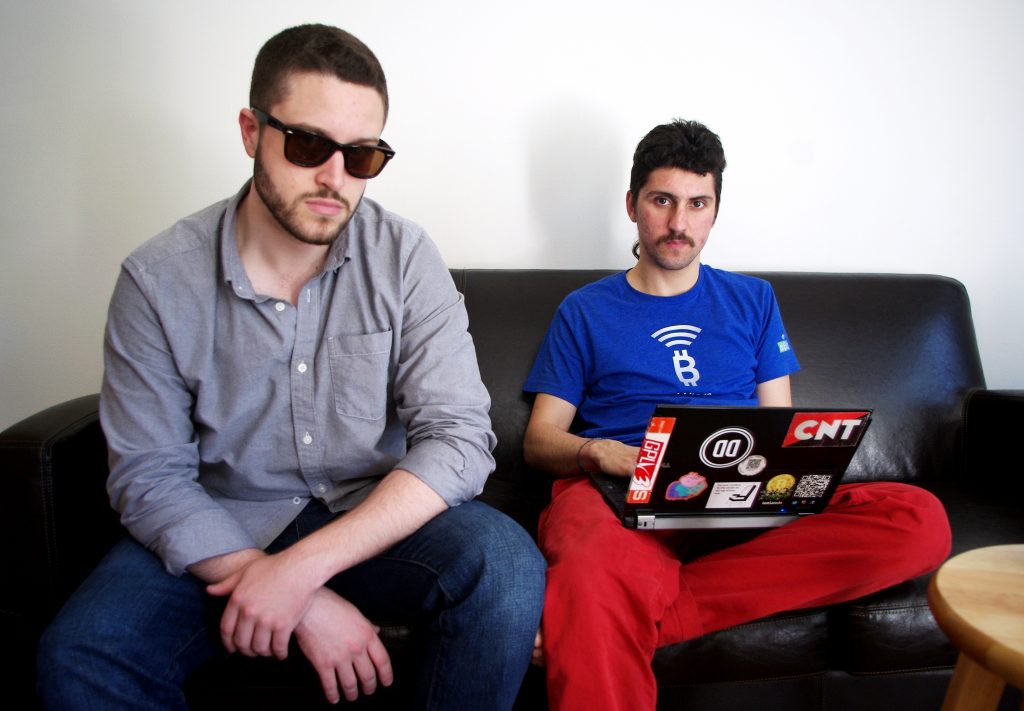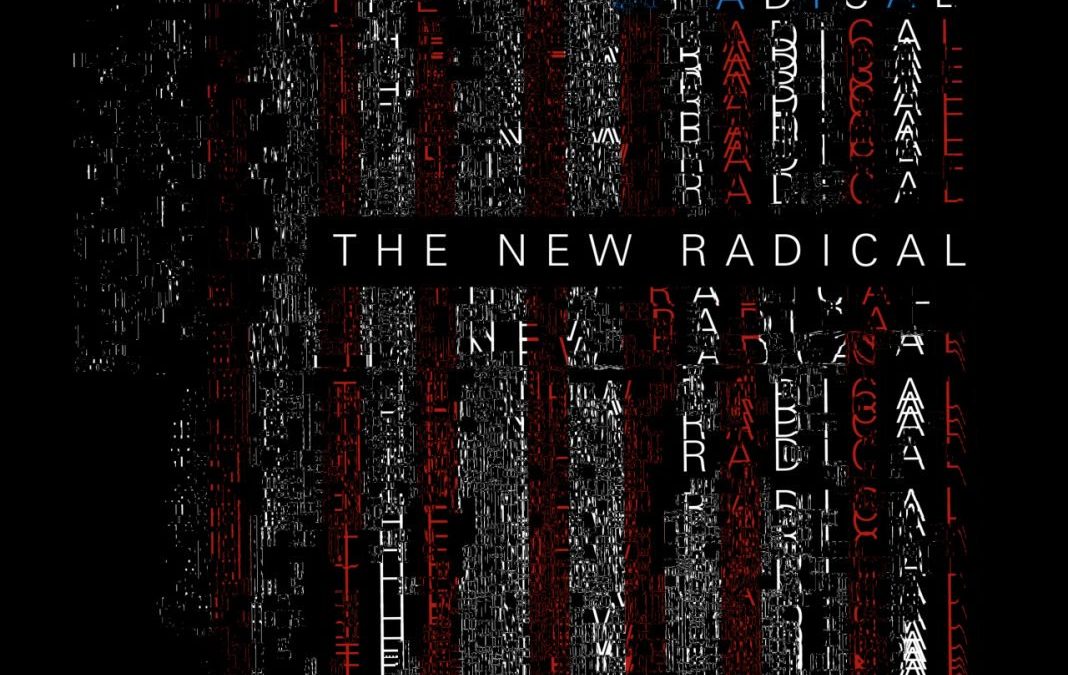In PART 2, crypto folk hero Amir Taaki shares his thoughts with news.Bitcoin.com on past projects and Altcoins, while pointing to a philosophical paradox he sees in the wider community. Read part one here.
Also read: Crypto-Anarchist Cody Wilson Launches 3D Printed M1911 Handgun Software
news.Bitcoin.com was fortunate enough to catch up with Amir Taaki. When Amir’s not fomenting change in Rojava’s economy, he’s working with cypherpunks in Barcelona to enable Catalans to vote their conscience. And when he’s not doing all of that, he’s the subject of documentaries such as The New Radical (to be released in December).
Since his return from Rojava, Mr. Taaki retains his cockney accent and stare, but he’s clearly changed. No more mohawks. No more 1970s mustache. He’s bearded, preferring a black Kangol these days. He’s in full revolutionary mode.
Opinions herein are only those of Mr. Taaki and, where explicitly stated, my own.
Technological Rapture
news.Bitcoin.com: Good to know Dark Wallet is not shelved. Is there a pattern developing? What I mean is, did you help birth or quicken these fascinating ideas and projects, like Bitcoin and Dark Market, and then they’re co-opted into areas opposite your intention. Does it ever feel futile?
Amir Taaki: I actually feel the opposite.
For a long time we had [prophets] of Bitcoin, drawing curves that showed we were approaching a period of phase transition in human history, a technological rapture or break with history. This priesthood sold tales of inevitable progress regardless of human action or will. That the cryptocurrency machine would through its own invisible desire come to dominate humanity, and that we had to either join as the new elite class or get left behind.
Always I’ve tried to explain to these self-professed rationalists, the simplistic progressive determinism of their views, that Bitcoin’s development is multi-directional, dependent on the thousand-sum decisions of many developers and individuals, and definitely not inevitable. However this multi-dimensional complex perspective of many possibilities is nowhere near as catchy or cool as the honey badger meme or the visceral bursting dam.
I’m not worried about these incorrect ideologies or beliefs of the world gaining any power. But what does worry me is that they create dangerous escapes from the real world that people withdraw into, unable to coherently analyze where we’re going, and it sucks a lot of energy and resources from a real balanced approach to understanding technological development.
We’ve heard that Bitcoin is limited, that its scripting system is too constrained to realize the full potentialities of this liberating technology, but still there hasn’t been a single strong real world use case that is not realizable with Bitcoin yet.
Or are we still going to talk about Mike Hearn’s self-replicating flying vending machines?
Bitcoin’s Serious Challenges
news.Bitcoin.com: AltCoins are everywhere now. What are your thoughts on them?
Amir Taaki: If people want to know about AltCoins then lets talk about Linux.
Linux started as a strong movement that was set to take over the world of the computer. Every year prophets would announce that the year of Linux on the desktop was imminent.
What started this movement was Richard Stallman’s strong vision about a free technology. Hackers had a sense of direction. His ideas and action inspired an entire movement to come together and build a free operating system.
But then Stallman’s ideas exhausted their possibilities. He never described what this operating system should do, or how it should look like. Stallman gained a lot of momentum behind him, but refused to organize or institutionalize his movement into an actual body able to form the root for developing Linux into a wider societal phenomena.
Do we want Bitcoin to mount a serious challenge to central banks and the current capitalist class, that can promote free markets and seriously shape global politics?
In the 90s, a new group more friendly to the establishment started the Open Source Initiative and stole the momentum away from Stallman. They discarded its principles and values in favour of profit and growth, stating that open code is a matter of convenience not freedom.
The first day of opening their company VA Linux stock rose to huge highs. A rush of excitement came over the community. The open source corporate take over was vindicated. Detaching the movement from its ideals had been the correct decision.
However that huge growth was short lived. VA stock dropped and dropped after the first few days then faded into obscurity. It was a prophetic sign of the free technology movement’s destiny.
Meanwhile Linux distributions numbered in the 100s with massive amounts of fragmentation in the market. Multiple desktop environments emerged, there was a huge duplication of effort with thousands of notepads, calculators but no serious video editors and lack of coherency across applications. Linux lacked any sense of direction or leadership.

Linux started to fragment, and in stepped Ubuntu. A new renaissance of the Linux desktop occurred, and Linux went through a new period of growth and development. They had a vision which inspired local communities around the world to start forming groups dedicated to spreading the Ubuntu cause.
However Ubuntu only ever had a vague higher mission, and it was always assumed that eventually the project would turn profit becoming self sustaining. When it didn’t, Canonical started to branch out into other ventures moving their focus away from their core product with additional non-Ubuntu services.
Linux never managed to take over the desktop. And when phones came to dominate the market, the movement was simply too fractured, too weak and unable to adapt to changing conditions occurring around them.
The Ubuntu phone was a last ditch attempt by Linux to stay relevant. The planned date of its completion, came and went several years ago. Nobody has heard anything about it. It was just quietly dropped.
Worse yet the movement stopped believing in a global Linux, instead turning inwards to focus on building Linux for themselves, withdrawing into their own online communities.
Here is the question we face.
Do we want Bitcoin to mount a serious challenge to central banks and the current capitalist class, that can promote free markets and seriously shape global politics? Or do we want to endlessly fork cryptocurrencies to make minor cosmetic improvements or develop new cool features with no real world application?
This is the real question that we need to ask ourselves as a community, and carve out a long term vision of how we are going to work towards challenging the power of central banks, this elite class controlling global capital and this system of modernity which opposes humanity.
Bitcoin solves a big real world problem and we should put all our energy into maximizing its ability to expand all the potentialities of a liberated humanity.
That doesn’t mean I oppose development along other roads of thought, but it needs to be balanced with a strong case for why we should alter our current path. After all, we want to win.
I see a whole load of people working on Bitcoin. But we need to ask where is it going towards? Spontaneously developing random features doesn’t lead anywhere. First we need a vision, then we work towards that as a collective body of people.
The idea that given enough eyes, all bugs are shallow is a liberal myth with no real world bearing on how real communities actually work.
What do you think? Is Amir Taaki correct about technology and bitcoin’s challenges? Tell us in comments below!
Photos courtesy of: SiliconANGLE, ubuntu, Andy Greenberg, AllDayEveryDay.
news.Bitcoin.com opinions and editorials are vital reading. Experience more of them here. At Bitcoin.com there’s a bunch of free helpful services. For instance, have you seen our Tools page? You can even lookup the exchange rate for a transaction in the past. Or calculate the value of your current holdings. Or create a paper wallet. And much more.
















